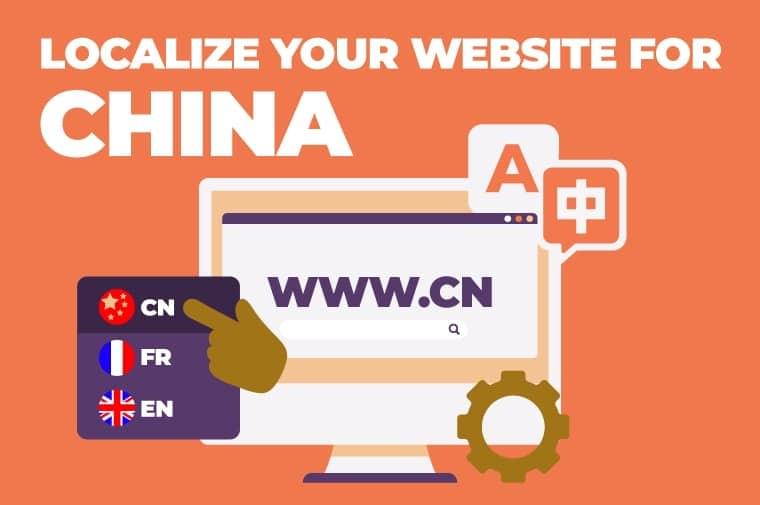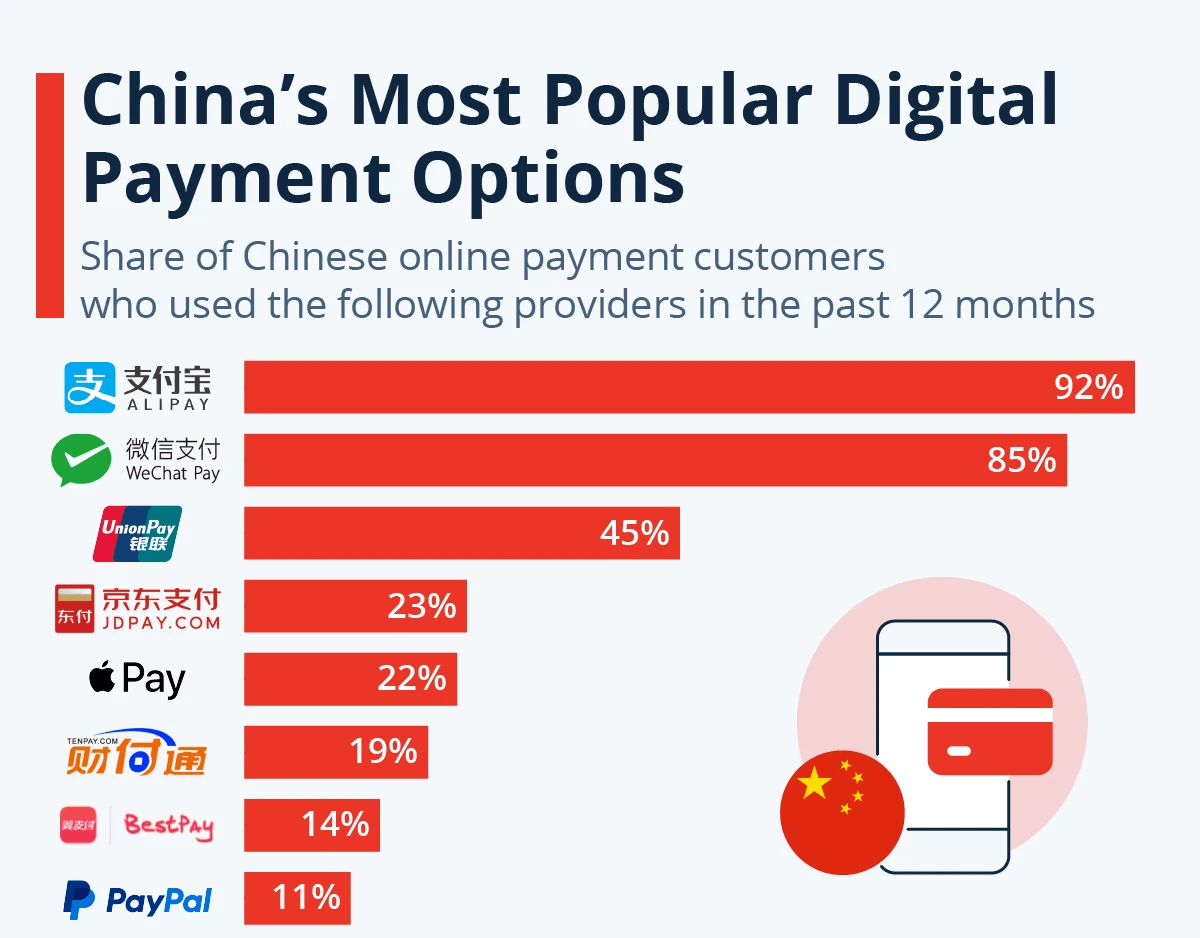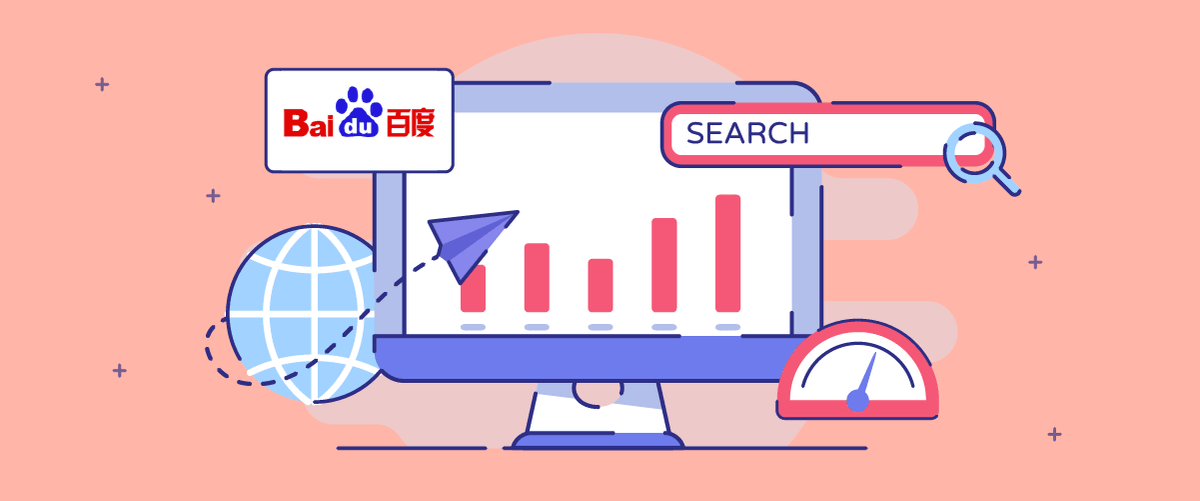Introduction: Why Website Localization in China Is Different
China's digital ecosystem follows its own regulations and restrictions. With the Great Firewall policy and language barrier, the website localization process in the Chinese market requires more than simple translations.
Unlike the West, Chinese consumers are attuned to utilizing domestic platforms for their daily digital needs. These channels operate according to local standards and laws, so your usual strategies may not work here as effectively as you'd think.
Did you know? Over 1 billion Chinese users access the internet through mobile devices, making mobile optimization not just important but essential for success in the Chinese market.
This comprehensive guide lays out proven steps for website localization in China, covering everything from major requirements (local hosting, domain name, ICP application) to strategies to help your brand effectively reach Chinese consumers in 2025.

Understanding China's Digital Landscape in 2025
Before diving into localization best practices, it's crucial to understand what makes China's online environment unique:
The Great Firewall
China's internet is regulated by what's commonly known as the "Great Firewall" - a sophisticated system of legislative actions and technologies enforced to regulate the domestic internet.
This system blocks many foreign websites and services including:
- Google services (Search, Maps, Analytics)
- Facebook, Instagram, Twitter, YouTube
- Many Western news sites
- Dropbox, OneDrive and similar cloud services
Distinctive User Preferences
Chinese users have different expectations for website design and functionality:
- Information density: Chinese websites typically display more information on a single page
- Animation and interactivity: Dynamic elements are highly appreciated
- Mobile-first approach: Over 98% of Chinese internet users access the web via smartphones
- Integration with local platforms: WeChat, Alipay, and other Chinese platforms are essential

Best Practice #1: Obtain Required Legal Permits
ICP Filing and Licensing
Any website hosted in mainland China must have an Internet Content Provider (ICP) filing or license. This is non-negotiable and enforced by the Chinese government.
There are two types of ICP credentials:
- ICP Filing (备案 - Beian): Required for all websites hosted in mainland China
- ICP License (许可证 - Xukezheng): Required additionally if your website will involve e-commerce or generating revenue in China
The application process typically takes about 20 business days and requires:
- A local Chinese business entity or partnership with a Chinese company
- Local representative with Chinese ID
- Business license and authorization documents
- Server hosting agreement with a Chinese provider
Pro tip: Many companies partner with local hosting providers who can assist with the ICP application process. This simplifies what can otherwise be a complex bureaucratic procedure.

Best Practice #2: Choose Proper Technical Infrastructure
Server Location and Hosting
For optimal performance, your website should be hosted on servers located within mainland China. This not only complies with regulations but dramatically improves loading speeds.
Options for hosting in China include:
- Local Chinese hosting providers
- International providers with data centers in mainland China
- Cloud services with a presence in China (e.g., Alibaba Cloud, Tencent Cloud)
Domain Strategy
Consider these options for your domain strategy:
- Chinese Top-Level Domain: Register a .cn domain for better local SEO and user trust
- Second-level domain: Create a cn.yourdomain.com subdomain
- Standalone Chinese domain: Have a completely separate domain for your Chinese website
Important: Chinese users prefer typing domain names directly, so having a memorable, easy-to-type domain is valuable.

Best Practice #3: Optimize Website Performance
Website speed is critical everywhere, but particularly in China where infrastructure and connectivity challenges can compound any existing performance issues.
Implement a China-Specific CDN
Standard global CDNs often don't work well in China. Instead:
- Use a China-based CDN with nodes throughout the country
- Providers like Alibaba Cloud CDN, Tencent Cloud CDN, or BaishanCloud are optimized for the Chinese network
Minimize External Dependencies
Many external services commonly used on Western websites are blocked in China:
- Replace Google Fonts with locally hosted fonts
- Remove Google Analytics (use Baidu Analytics instead)
- Avoid embedded YouTube videos (use Youku or Bilibili)
- Replace social media sharing buttons with WeChat, Weibo options
Mobile Optimization is Non-Negotiable
With the vast majority of Chinese internet users on mobile devices:
- Implement responsive design prioritizing mobile experience
- Optimize image sizes and minimize HTTP requests
- Consider developing a simplified mobile version for slower connections

Best Practice #4: Content Localization Beyond Translation
Professional Translation and Cultural Adaptation
Simply translating your content word-for-word isn't enough. Your content needs to be:
- Professionally translated by native Chinese speakers
- Culturally adapted to reflect local sensibilities and preferences
- Reviewed by local marketing experts for cultural appropriateness
Color and Visual Design Considerations
Colors carry different meanings in Chinese culture:
- Red: Symbolizes good luck, joy and prosperity (widely used in Chinese websites)
- Gold: Represents wealth and prosperity
- White: Associated with mourning in traditional contexts (use carefully)
- Black: Can symbolize bad luck or evil (use with caution)
Content Structure and Density
Chinese users typically prefer:
- Higher information density on pages
- More visually rich interfaces with animations
- Detailed product specifications readily available
- Multiple navigation options and paths to the same information

Best Practice #5: Integrate with Local Platforms
Chinese Search Engine Optimization
Google has minimal presence in China. Focus your SEO efforts on:
- Baidu: China's largest search engine (over 70% market share)
- Sogou: Second largest search engine, especially popular on mobile
- 360 Search: Significant player in the Chinese search market
Baidu SEO requires specific techniques:
- Prefer simplified Chinese content with mainland China vocabulary
- Host your website in China for better rankings
- Register with Baidu Webmaster Tools
- Build backlinks from Chinese websites
Payment Integration
Chinese consumers rarely use credit cards or PayPal. Instead, integrate:
- WeChat Pay: Connected to the ubiquitous WeChat ecosystem
- Alipay: Alibaba's payment platform with massive user base
- UnionPay: China's domestic bank card network
Social Media Integration
Replace Western social media with Chinese equivalents:
- WeChat: Multi-purpose messaging, social media, and mobile payment app
- Weibo: Microblogging platform similar to Twitter
- Xiaohongshu (RED): Social media and e-commerce platform popular with younger users
- Douyin: Chinese version of TikTok, extremely popular for short videos

Best Practice #6: Adapt to Chinese User Experience Patterns
Navigation and Layout
Chinese websites often feature:
- More navigation options and menus
- Greater use of sliders and carousels
- Prominent search functionality
- QR codes for mobile engagement
Trust Signals
Chinese consumers look for specific trust indicators:
- Customer service contact options (especially WeChat)
- Company registration information displayed prominently
- Quality certifications and awards
- User testimonials and product reviews
Content Preferences
Effective content strategies include:
- Detailed product specifications
- Comparison tables and feature lists
- Video demonstrations
- Key information presented visually rather than in long paragraphs

Best Practice #7: Implement Ongoing Compliance and Maintenance
Content Monitoring and Censorship Awareness
Be aware of sensitive topics that may cause issues:
- Political discussions
- Maps showing disputed territories
- Content that could be considered disruptive to social harmony
- References to Taiwan, Tibet, or Hong Kong independence
Regular Technical Maintenance
The Chinese digital ecosystem evolves rapidly:
- Update your ICP filing if you change hosting providers
- Monitor for changes in regulations affecting foreign websites
- Regularly test website performance from within mainland China
- Keep payment integrations updated as platforms evolve
Conclusion: Success Requires Commitment to Localization
Successfully entering the Chinese digital market requires more than just translation—it demands a comprehensive localization strategy addressing technical, cultural, and legal requirements.
By following these seven best practices, you'll be well-positioned to create an effective online presence that resonates with Chinese consumers and complies with local regulations.
Remember that China's digital landscape continues to evolve rapidly, so staying informed about new trends, platforms, and regulations is essential for long-term success.

FAQs About Website Localization in China
1. Do I need an ICP license if my website is hosted outside China?
No, an ICP license is only required for websites hosted on servers within mainland China. However, websites hosted outside China often experience significant speed and access issues due to the Great Firewall.
2. How long does the ICP application process take?
The standard ICP filing process typically takes 20-30 business days after submitting all required documentation. ICP licenses for commercial activities may take longer.
3. Can a foreign company get an ICP license directly?
No, foreign companies need to establish a local Chinese entity or partner with a Chinese company to apply for an ICP license.
4. Which payment methods should my Chinese website support?
At minimum, your website should support WeChat Pay and Alipay, which together account for over 90% of mobile payments in China. UnionPay is also recommended for broader coverage.
5. How can I test if my website works well in China?
Use specialized testing tools that simulate access from within China, or work with a local partner who can provide real-time feedback from mainland China.
6. Should I create a separate mobile app for the Chinese market?
While not strictly necessary if your website is well-optimized for mobile, many companies find that developing a dedicated app provides better user experience and integration with Chinese platforms.
7. How often should I update my localized Chinese website?
Chinese digital trends evolve rapidly, so quarterly reviews of your website's performance, content, and technical aspects are recommended, with more frequent updates to match seasonal promotions or campaigns.